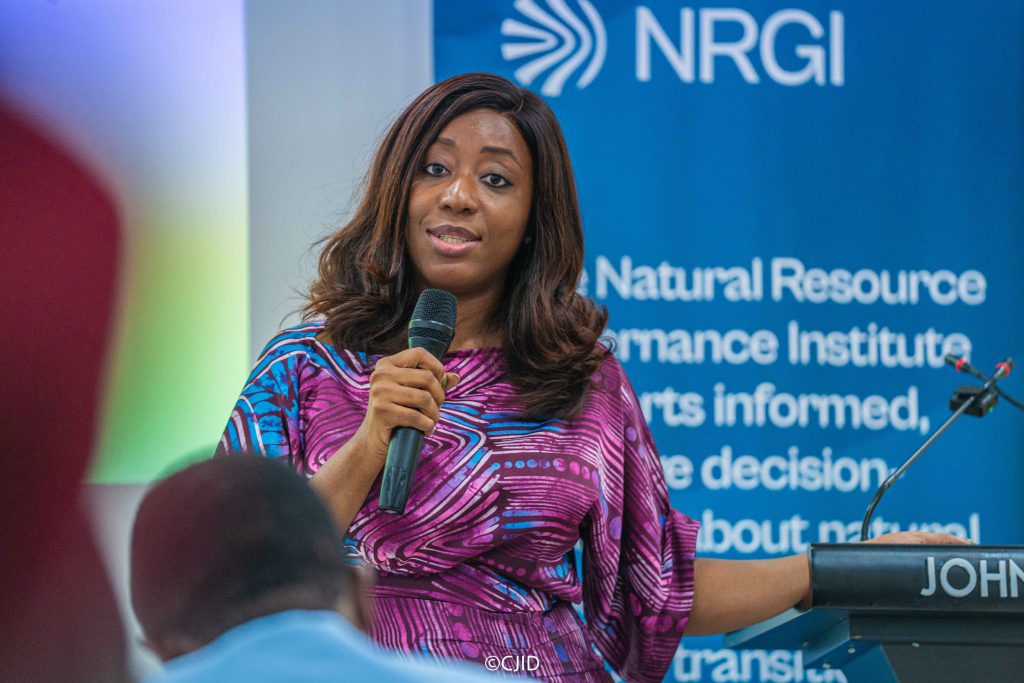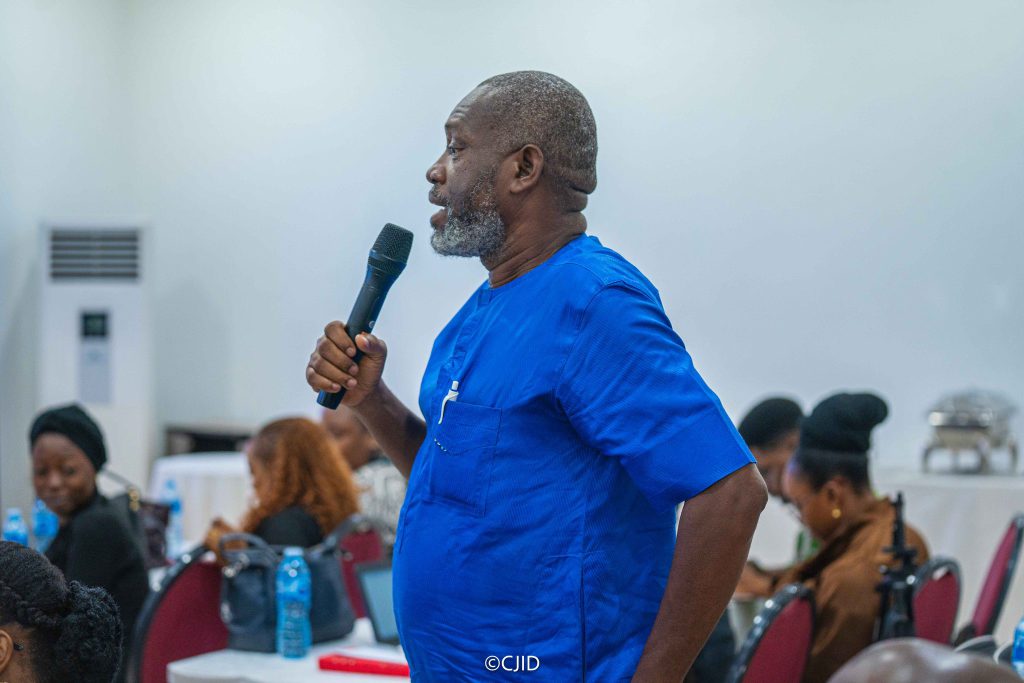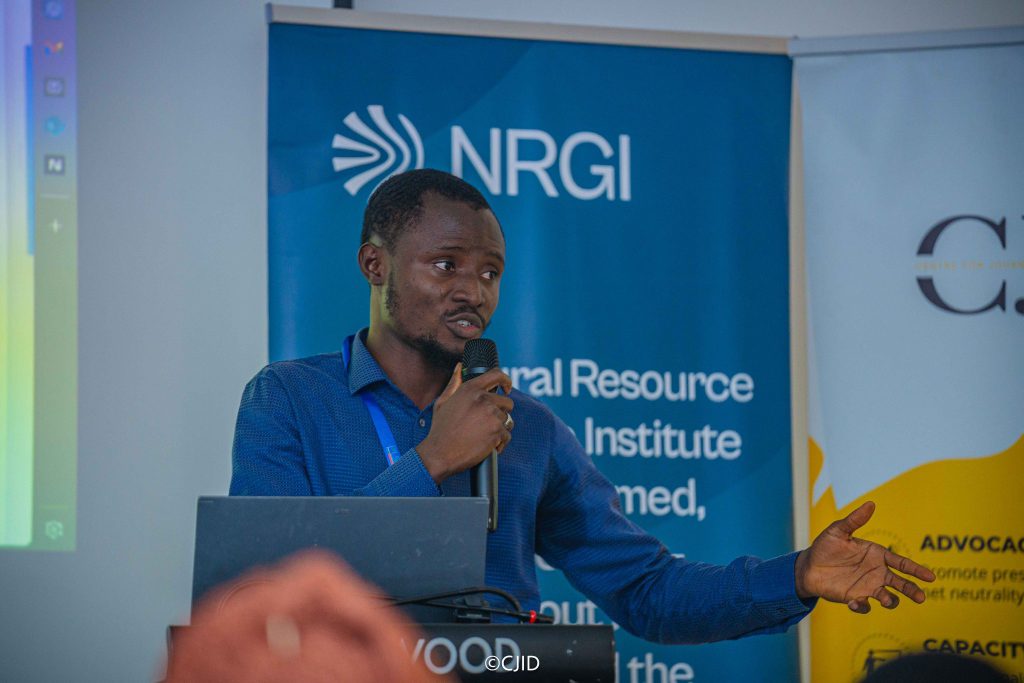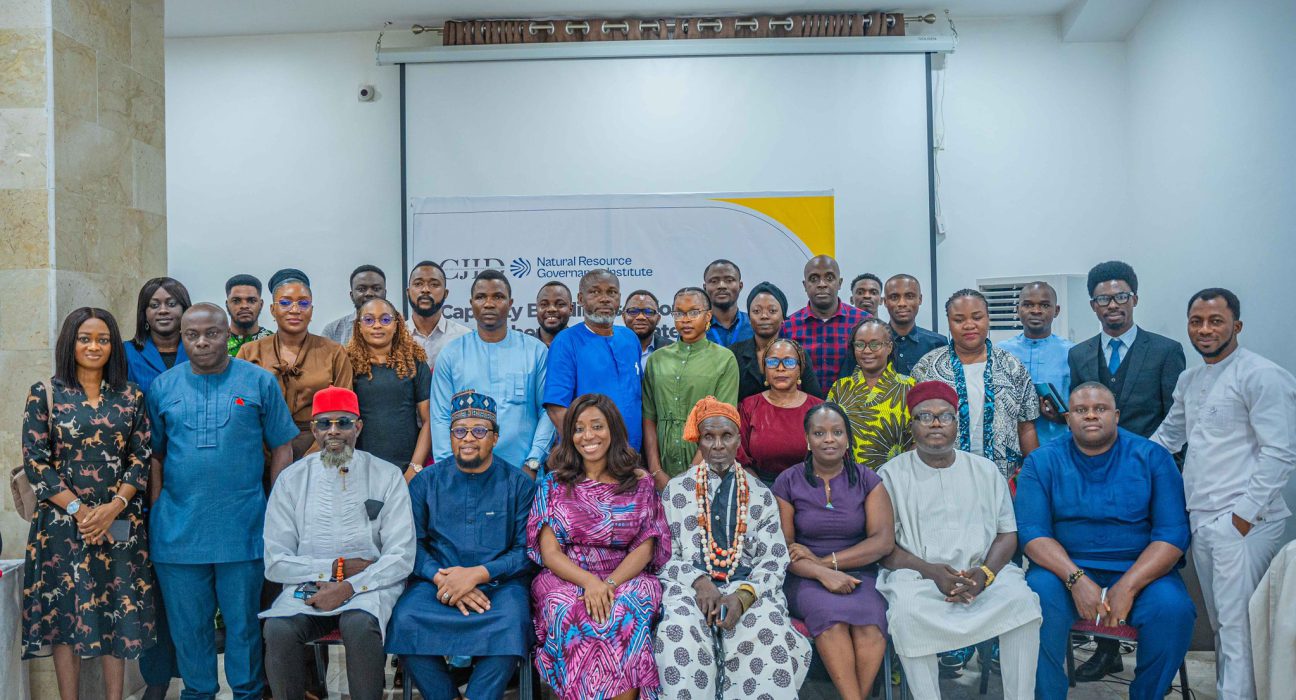By Patrick Obia
An advanced two-day capacity building workshop on “Strengthening Public Accountability of Methane Emissions Reduction Efforts”, has kicked off in Nigeria’s capital of Abuja.
The capacity building training session aims to equip Civil Society Organisations (CSOs) and media professionals with the technical knowledge and practical skills needed to effectively drive the discourse.
The exercise organized by Center for Journalism Innovation and Development (CJID) in collaboration with Natural Resource Governance Institute (NRGI), will provide participants with insights into leveraging global frameworks and tools such as the Oil and Gas Climate Initiative, the Oil and Gas Decarbonization Charter, the OGMP Framework, emerging EU methane regulations, and satellite-based monitoring technologies like MethaneSAT to bridge the gap between transparency and action.
Ongoing at JohnWood Hotels, Wuse Zone 5, Abuja, participants, especially the media and CSOs will arm themselves with the relevant tools to hold government and other actors accountable in the oil and gas sector.
To set the ball rolling on day one on the topic, ‘the imperative of strengthening emissions monitoring and accountability’, the Senior Officer and Program Officer of NRGI, Tengi George-Ikoli and Ahmad Abdulsamad, said the session sets the context and makes a case for strengthening methane emissions monitoring and transparency levers in Nigeria and aligned with national and global priorities.

They noted that it sets out the unique role of
CSO and Media in holding government and the industry actors to account, as well as the economic, environmental and social of meeting national and global emission reduction targets.
“It is important to educate and provide platforms for those who are affected by methane emissions to be able to tell their stories beyond their communities and also to be able to inform government actions to reduce methane emissions. Methane Emissions is the most potent Greenhouse Gas (GHG). It has a great impact on the livelihood of communities in terms of health – cardiovascular, respiratory and environmental degradation. It is important we put people at the forefront, create tools, policies and ways we can actually translate all these targets into real outcomes,” Tengi George-Ikoli said.
She disclosed that: “We want the CSOs and the media to hold the government to account to its national and global emissions reduction targets. Nigeria has a very ambitious target it has set for itself by limiting gas flaring by 2030.”
Ahmad Abdulsamad charged participants to leverage on the tools they will be exposed to.
The Project Manager for CJID, Felicia Dairo said the media has a huge role to play in disseminating information and informing the public.
She said for the media to do her work properly, they have to be informed to be able to educate the citizens especially in the area of methane emissions reduction and climate change.
“Nigeria has a commitment in regards to methane emissions reduction, how then do we ensure accountability to all of these commitments; that is why we feel we need to train the media. When the media and the CSOs know, they will be able to hold accountable and advocate around these issues.”
She averred that over the years, CJID and NRGI have worked collaboratively to promote transparency and accountability around methane emissions reduction in Nigeria.
“The media should keep reporting and the CSOs should keep advocating until the right thing is done to get the government to act on the commitment they have made,” she advised.
Other speakers including Rob Pitman – NRGI and Sebastian Sehla – Extractive Industry Transparency Initiative (EITI), both spoke on the ‘Global context and EITI use cases for emissions transparency and accountability’.
The session explored emerging global trends in emissions
monitoring, transparency, and accountability within the context of the energy transition. It also examined the strategic data points, and the role governments and companies can play in advancing credible emissions governance and how the EITI serves as a powerful lever to support these efforts.
State of Emissions Data Transparency in Nigeria – Progress, Challenges, and Collaboration Opportunities was taken by Abdulmumin Abubakar of Nigeria Extractive Industry Transparency Initiative (NEITI).

The session featured insights from NEITI on the current state
of emissions data transparency in Nigeria, outlining the processes undertaken to secure disclosures, key achievements, and ongoing challenges. It also highlighted potential entry points for collaboration with civil society and the media to deepen impact and drive accountability.
Similarly, the Program Officer of Paradigm Leadership Support Initiative (PLSI), Monsuru Olatunji led a presentation on Emissions Monitoring and Accountability Tool.
The presentation involved practical application of EMA to
participating civil society and media stakeholders. The session also validated the tool’s relevance and showcased its potential as a lever for advancing transparency and accountability in emissions reporting and governance.

The engaging and interactive sessions involved questions and answers as participants and seasoned speakers in the industry kept brainstorming.

Leave feedback about this